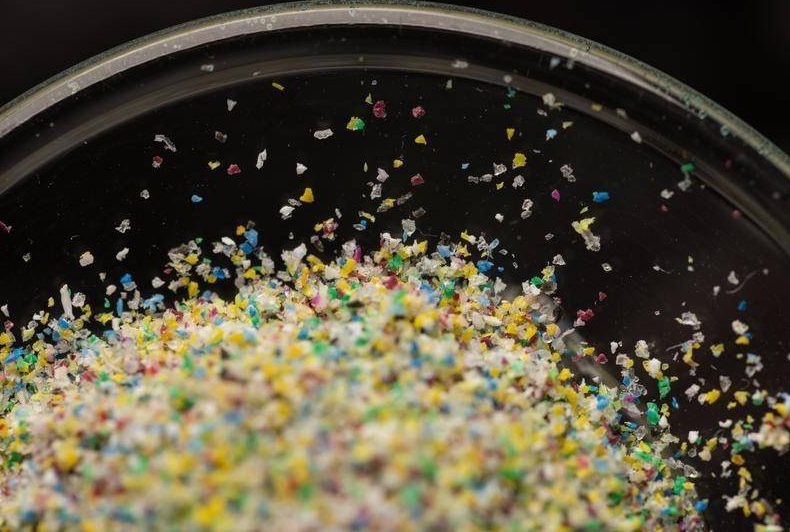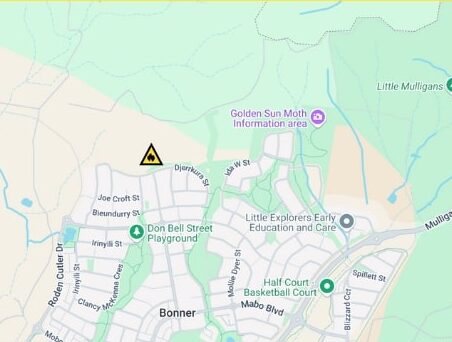
By Liv Casben in Sydney
THEY’RE often smaller than the diameter of a human hair and so tiny they’re invisible to the eye but the impact that plastics have on our food safety could be huge, according to a new report.
Fresh concerns have been raised over the impact plastic has on our food safety and security, in the report from Australia’s science agency CSIRO.
While earlier studies tracked plastics in fish, this research is among the first to look at microplastics from a food safety point of view.
The study concluded the micro and nanoplastics enter the human food chain through numerous pathways and called for more research to establish how they could affect human health.
“There is a lot of research to be done to better quantify the potential risk,” the paper’s lead author, CSIRO researcher Jordi Nelis said.
“They may really have potential negative effects on food safety and food security.”
The researcher said plastics were found all in types of food with varying levels found in fish as well as meat, chicken, rice, water, take-away food and even fresh produce.
One of the main ways they entered the human food chain was through food processing and packaging.
“Fresh food for example can be plastic-free when it’s picked or caught but contain plastics by the time it’s been handled, packaged and makes its way to us,” Dr Nelis said.
The paper found agricultural systems were increasingly impacted by micro and nanoplastics, raising concerns for global food safety and security.
Plastics are also entering the soil through biosolids used as fertiliser sourced from wastewater treatment, which can contain plastic particles from the washing of synthetic clothing.
“There are clear indicators that microplastics can change soil structure, also that they may affect crop production,” Dr Nelis said.
“But we have no idea how many microplastics there are in the soil.”
While the study didn’t look at how toxic microplastics can be to human health it did find big knowledge gaps regarding their impact and measurements, especially in agriculture.
“Limited knowledge exists on the potential risks these MNPs (micro nano plastics) may pose to global food safety and food security,” the paper said.
“MNPs may cause changes to agricultural systems such as affecting soil properties, changing microbiomes and plant growth.”
The study analysed academic literature that found chicks exposed to microplastics exhibited delayed growth and reduced feed intake compared to control groups.
While other studies on microplastic exposure found there was no impact.
The researcher said there was no such evidence showing human babies were at risk.
“There is, however, proof that these particles can pass through the placenta into basically the fluids that are being used by the babies,” Dr Nelis said.
“I am pretty confident to say that there’ll be millions and millions of particles that we’ll ingest every year.”
CSIRO is on a mission to end plastic waste and wants the amount of plastic waste entering the Australian environment reduced by 80 per cent by 2030.
Ending plastic waste researcher Mike Williams told AAP consumers can help by reducing their reliance on plastic in everything from food to clothes.
“As individuals, the less plastic you use, the less plastic gets out to the environment.”
“You can choose to buy food without packaging, another big source of plastics in the environment is from our clothes,” Dr Williams said.
“You can wear natural fibres and buy special filters that go on to your washing machine and clean them out regularly.”
Earlier research has found microplastics can leach into food when it’s heated up in plastic containers.
Who can be trusted?
In a world of spin and confusion, there’s never been a more important time to support independent journalism in Canberra.
If you trust our work online and want to enforce the power of independent voices, I invite you to make a small contribution.
Every dollar of support is invested back into our journalism to help keep citynews.com.au strong and free.
Thank you,
Ian Meikle, editor





Leave a Reply